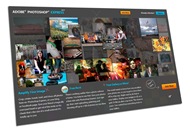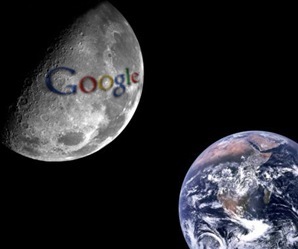There’s a lot making the news recently that I’ve felt the need to post about in the last 7 days, but haven’t had the chance. So, there’s nothing else for it but to release another ‘round-up of the week’ with 5 hot picks of unrelated, random stories that have caught my eye.
ICO re-states preventative not hard-line enforcement role - From outlaw.com 19.03.08
 The ICO said that it would concentrate more on the avoidance of this risk than strict enforcement of the law. "We are not seeking compliance with the law as an end in itself," it said. "Making our vision a reality means minimising data protection risk for individuals and society. The law is the main tool we have at our disposal to achieve this, but we go further and promote good practice."
The ICO said that it would concentrate more on the avoidance of this risk than strict enforcement of the law. "We are not seeking compliance with the law as an end in itself," it said. "Making our vision a reality means minimising data protection risk for individuals and society. The law is the main tool we have at our disposal to achieve this, but we go further and promote good practice."
"We cannot address all areas of data protection risk equally, nor should we attempt to do so," it said.
Maybe the ICO feel they are trying to do too much - to be all things to all people. Perhaps, they feel, you can’t wholeheartedly work as an advisory body for the public and data controllers as to the data protection law and actively enforce these laws as well.
But this isn’t a time for the ICO to start getting worried about being perceived as too hard line, police-like or even interventionist. Excuse me, ICO – if you start shying away from cracking down on data protection issues, who, exactly is going to pick up the slack? Perhaps, even, this announcement is more politically motivated; a bid aimed at increasing their budget. Who knows? Either way, with more data being created, processed and stored than ever before, the need for effective enforcement is greater than ever.
B imbo Game - Officially dubbed a ‘virtual fashion game’ this online atrocity has really hit the headlines in the last week or so. And seriously, this stuff just kills me.
imbo Game - Officially dubbed a ‘virtual fashion game’ this online atrocity has really hit the headlines in the last week or so. And seriously, this stuff just kills me.
People said that First Person Shooters and other action games are harmful for children - so what about this one? Surely, this type of game could do an immeasurable amount of damage to young web users. At least FPSs and other games of an extreme nature - such as the Grand Theft Auto franchise - are obviously dangerous. Still, at least you know what you’re getting with those. The risks presented by games such as Bimbo are more subtle and, therefore, arguably more hazardous. After all, gam es which play and even feed on people's insecurities, doubts and fears can never be a good thing. But by perpetuating the dangerous, misguided and unrealistic illusion of size zero body sizes via a game designed for kids makes it something all together worse.
Then again, maybe I shouldn’t be so surprised. If such things as Zwinky the toolbar exist, what’s more logical than a game where your slut-up your bimbo, sh*g your way to money and puke your way to a skeletal shell.
EULA slip-up prevents Windows users from installing safari
 Apple got their act together after news of the EULA detail was embarrassingly bandied about the net and now have changed with wording to allow Windows users to legally install Safari. If you’re running iTunes, you might not even have a choice, given that Steve Jobs has seen fit to use the software update function to push out the latest version of Safari, Apple’s web browser. For what it’s worth, Safari does a nice job of text rendering but other than that, it’s a definite also ran behind Firefox and IE. Given the lack of customisation and innovative features Safari boasts, probably behind Opera, too.
Apple got their act together after news of the EULA detail was embarrassingly bandied about the net and now have changed with wording to allow Windows users to legally install Safari. If you’re running iTunes, you might not even have a choice, given that Steve Jobs has seen fit to use the software update function to push out the latest version of Safari, Apple’s web browser. For what it’s worth, Safari does a nice job of text rendering but other than that, it’s a definite also ran behind Firefox and IE. Given the lack of customisation and innovative features Safari boasts, probably behind Opera, too.
Adobe finally release online version of Photoshop
 Dubbed Photoshop Express, this watered down online version of the best-of-breed graphics software was released this week. I heard about the project over a year ago and have been eagerly awaiting its release. Early signs are interesting, though not necessarily encouraging. I have to admit I was hoping for a slightly more full-featured offering than Adobe seem to have released at this stage. It’s clearly pitched more towards competing with Piknik and other such programs, tied closely with online storage and sharing of digital photos, rather than being a hardcore graphic manipulation program.
Dubbed Photoshop Express, this watered down online version of the best-of-breed graphics software was released this week. I heard about the project over a year ago and have been eagerly awaiting its release. Early signs are interesting, though not necessarily encouraging. I have to admit I was hoping for a slightly more full-featured offering than Adobe seem to have released at this stage. It’s clearly pitched more towards competing with Piknik and other such programs, tied closely with online storage and sharing of digital photos, rather than being a hardcore graphic manipulation program.
 And finally, vnunet reports that “just one in 10 adults in the UK trusts the government with their personal information, according to a study commissioned by Data Encryption Systems (DES).” Well, tell us something we don’t know.
And finally, vnunet reports that “just one in 10 adults in the UK trusts the government with their personal information, according to a study commissioned by Data Encryption Systems (DES).” Well, tell us something we don’t know.




